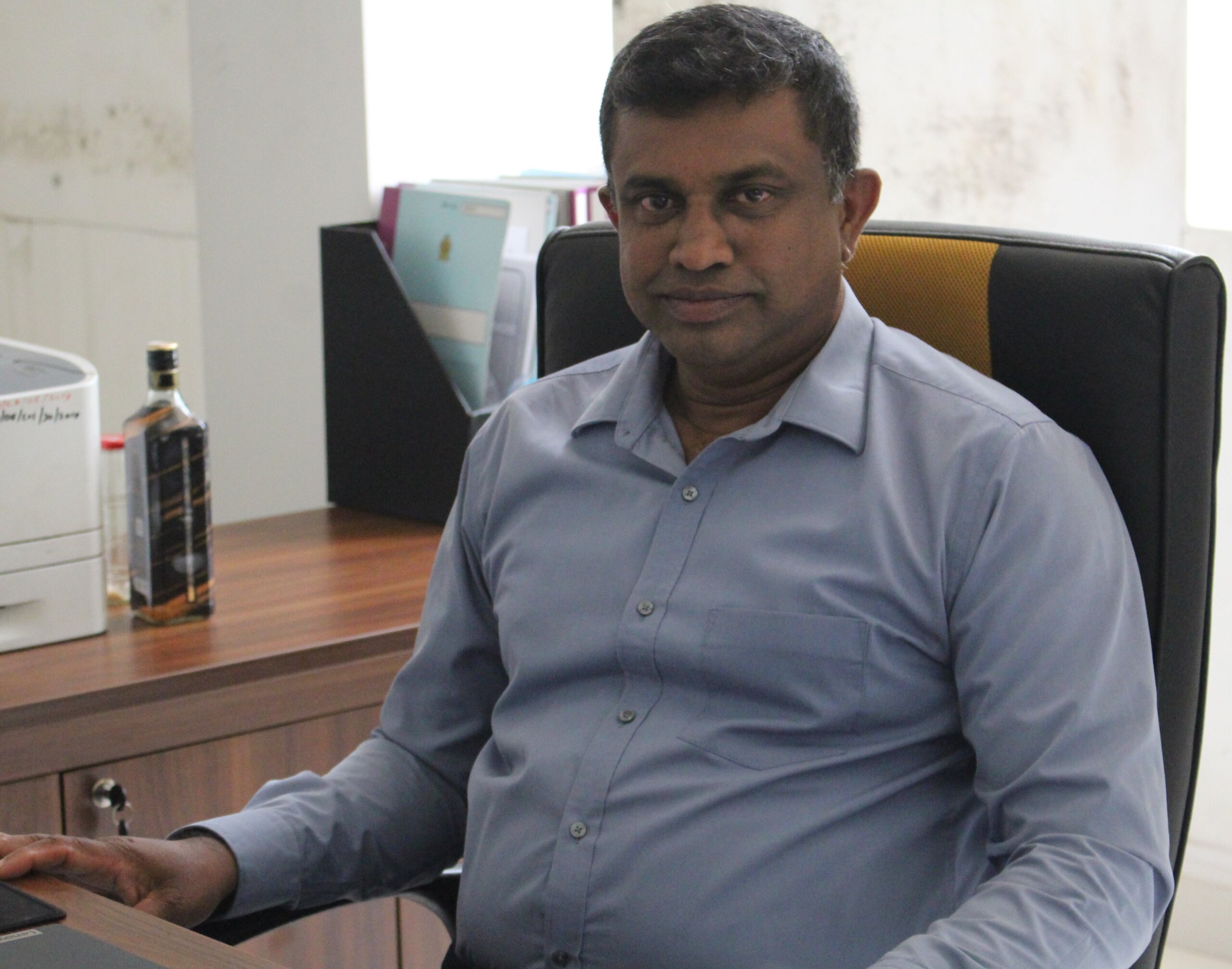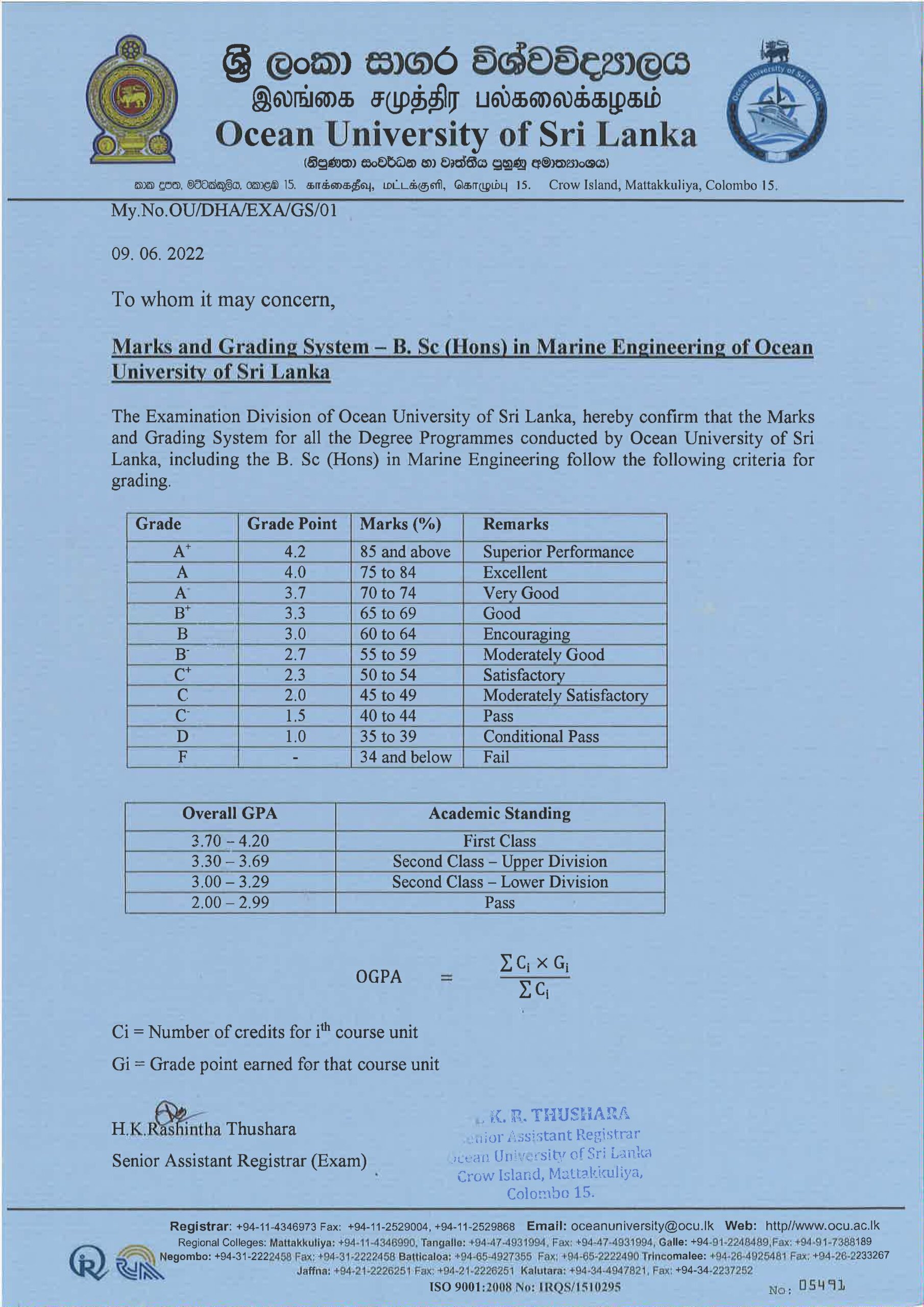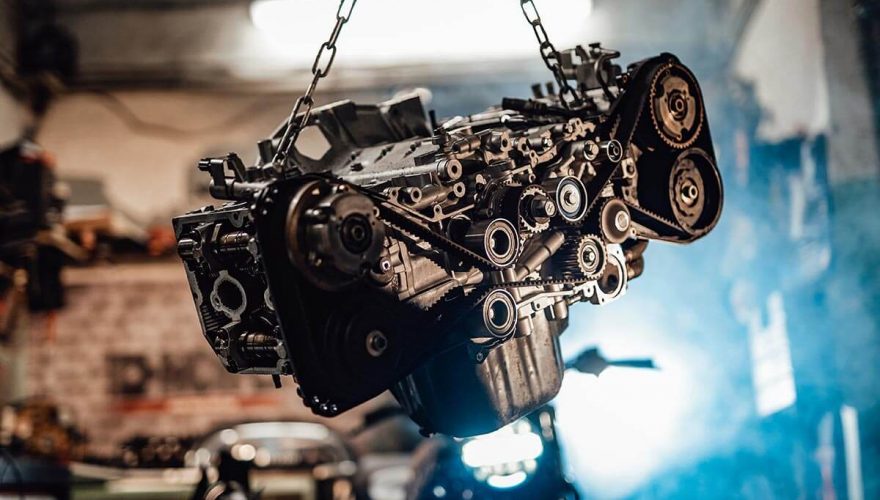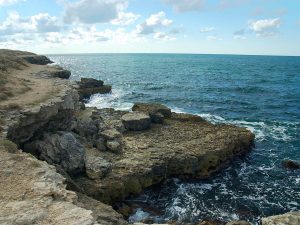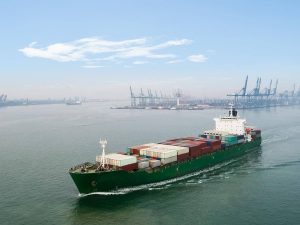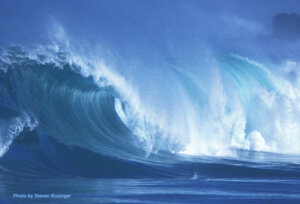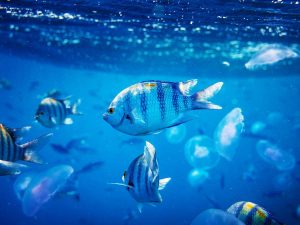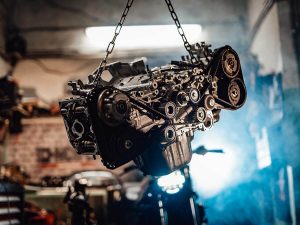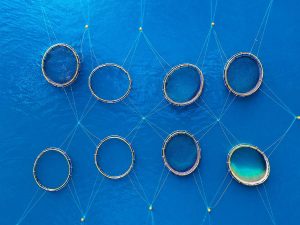Bachelor of Science in Marine Engineering
- About this course
- Entry Requirements
- Course Structure
- Modules
- Learning and Assessment
- Careers
- Staff
- Credit Descriptors
About this course
Marine engineering applies basic engineering principles to systems design, construction and operation in predominately Maritime environments. This includes wide variety of seafaring vessels, docks, harbors, freight-handling facilities, oil platforms, and ocean renewable Energies, shipbuilding facilities, but also marine engines, motors and Maritime Law etc.
Marine Engineering degree course at the department of Marine Engineering was designed to produce graduates with comprehensive theoretical knowledge and practical competencies to work in the industry.
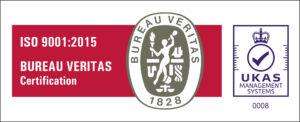
Study areas in this course
Naval Architecture, Ship Construction, Ship Stability, Ship Resistance, Fluid Mechanics, Machine Designing, Mechanics of Materials, Ship Resistance, Engineering Knowledge (Motor), Engineering Knowledge (General), Shipboard Electricals etc.
You will have the opportunity to engaged the core parts of this program
- Engineering Designs & Analysis
- Data management and programming skills
- Practical experience in Engineering works
- Scientific research skills
- Computer Aided Designing/Manufacturing & Engineering
After Developing a range of key skills in this program, you will be
- Provided with professional-level skills that are ideal for a career in the expanding marine engineering sector
- Able to progress with higher education in specialized postgraduate study
- Prepared for a career in industries like, ship building, ship repairing, design engineering, ref & aircon, maintenance engineering fields etc..
Advanced-levels
Applicants must have passed the G.C.E. advanced level examination with minimum of 2Cs and 1S passes in one sitting within single attempt in mathematical stream (as per UGC norms compatible with IESL requirements).
Applicants who sat for G.C.E. advanced level within three attempts at the immediate previous year, are eligible to apply
Applications are called from the prospective candidates through the Ocean University website in the relevant year. Students will be selected based on highest z-scores and You will be required to attend an interview.
Course structure
In the first year, you’ll develop your foundation knowledge in basic engineering science and introductory level modules on thermodynamics, fluid mechanics, workshop technology, programming, engineering mathematics and computer aided modelling. You'll gain the field and laboratory skills and semester end field visits.
In your second year, you'll focus to deep learning modules such as manufacturing engineering, mechanics of machines, Naval Architecture, Control Engineering, Applied thermodynamics, Electricals Machines, Mechanics of Materials, Design of Machine Elements, Probability & Statistics, Welding & Fabrication and Hydraulics and fluid Machineries.
In your third year, you'll study advanced topics such as Ship Construction, Engineering Knowledge(Motor), Engineering Knowledge(General), Ship Stability and Machine designing projects where you will have more exposure to work with Industry related applications of the engineering. In the end of the year you will be assigned for an internship in the reputed organizations to develop your skills on industry based job training and required to produce a report.
In the final year, You will have more applied engineering knowledge on Machine designing, Naval Architecture, Ship Resistance, Shipboard Electricals & High Voltage with a Research and Dissertation component. The degree program will be completed with submitting research dissertation.
Course Out Comes
Skills
- Have the necessary competences required by the STCW and serve as officers in charge of Marine Engineering watch after attaining their CDC engineering watch licenses.
- Engage and show knowledge of general job related competences by developing ability to work towards solving problems
- Engage and show knowledge of discipline-specific scientific competences by acquiring and understanding of basic scientific knowledge
- Engage and develop the sense of analytical and critical thinking and knowledge of research methods and techniques (Quantitative and qualitative) and ability to apply them.
- Develop the sense of problem-driven thinking and problem-solving action.
- Engage and develop social responsibility in the professional context
- Graduates can develop skills on analyses use and refer to relevant information, scientific and professional literature, present and discuss this in order to illustrate and explain a problems.
Knowledge
- Knowledge on Marine Engineering including, mechanical, electrical, electronic and control engineering, maintenance and repair and controlling the operation of the ship and care for persons on board at the operational level
- Knowledge on refrigeration technology, shipboard administration and cultural awareness and safety management and organizational theory
- Knowledge on national and international rules and regulations concerning Marine Engineering and the technical operation of ships
- Applied knowledge on Mathematics, Natural Science, Maritime English, Economics and Management related to the technical operation of ships
- Knowledge on research method and academic writing and familiar with ongoing research within maritime technical science.
Attitude
- Appreciate the need to commit to a professional standard of behaviour based on professional ethics & conduct.
- Assume responsibility for taking a lead role in collaborative processes.
- Appreciate the technical and operational issues associated with the development of Marine Engineering
- Appreciate the importance of Marine Engineering practices in the country.
- Appreciate the need for ongoing professional development and education
Mind Set
After completion of the degree, students will develop to set their mind to work in any profession or environment related to mechanical, marine engineering and management in world class industries.
Year 1Year 2Year 3Year 4
Semester 1
MaE 1013 - Mathematical Fundamentals for Engineers
Content
MaE 1022 - Engineering Drawing
Content
MaE 1034 - Workshop Technology and Practice
Content
MaE 1042 - Programming Fundamentals
Content
MaE 1052 - Introduction to Oceanography
Content
MaE 1063 - Thermodynamics
Content
MaE 1072 - Engineering Physics
Content
MaE 1082 - Engineering Chemistry
Content
MaE 1092 - Maritime English I
Content
MaE 1101 - Life Skills
Content
Semester 2
MaE 2013 - Advanced Mathematics for Engineers
Content
MaE 2023 - Engineering Drawing II
Content
MaE 2033 - Electrotechnology
Content
MaE 2043 - Engineering Mechanics
Content
MaE 2053 - Fluid Mechanics
Content
MaE 2062 - Programming II
Content
MaE 2072 - Computer Aided Modelling
Content
MaE 2082 - Maritime English II
Content
MaE 2092 - Meditation
Content
Semester 3
MaE 3013 - Fundamentals of Electronics
Content
MaE 3023 - Mechanics of Machines
Content
MaE 3023 - Mechanics of Machines
Content
MaE 3042 - Manufacturing Technology
Content
MaE 3052 - Principles of Naval Architecture
Content
MaE 3063 - Mechanics of Materials I
Content
MaE 3073 - Control Systems
Content
MaE 3081 - Professional Ethics
Content
Semester 4
MaE 4013 - Applied Thermodynamics
Content
MaE 4023 - Probability & Statistics
Content
MaE 4033 - Ship Machinery Automation Systems
Content
MaE 4043 - Design of Machine Elements
Content
MaE 4052 - Mechanics of Materials II
Content
MaE 4062 - Electrical Machines I
Content
MaE 4073 - Engineering Knowledge (Motor) I
Content
MaE 4083 - Welding & Fabrication Technology
Content
MaE 4091 - Dancing
Content
Semester 5
MaE 5013 - Industrial Economics
Content
MaE 5023 - Ship Construction
Content
MaE 5032 - Machine Design and Projects
Content
MaE 5043 - Electrical Machines II
Content
MaE 5053 - Numerical Methods in Mathematics
Content
MaE 5063 - Ship Stability
Content
MaE 5073 - Engineering Knowledge (General) I
Content
MaE 5083 - Engineering Knowledge (Motor) II
Content
Semester 6
MaE 6016 - Industrial Training
Content
Semester 7
MaE 7013 - Mathematical Modelling
Content
MaE 7022 - Industrial Management
Content
MaE 7033 - Shipboard Operations
Content
MaE 7043 - Ship Resistance and Propellers
Content
MaE 7052 - Shipboard Electricals and High Voltage
Content
MaE 7063 - Industrial Hydraulics & Pneumatics
Content
MaE 7073 - Design of Marine Vessels
Content
MaE 7083 - Power Electronics
Content
Semester 8
ME 8013 - Financial Management
Content
ME 8026 - Project & Dissertation
Content
ME 8032 - Marine Control Systems & Instrumentations
Content
ME 8042 - Maritime Safety and Maritime Law
Content
ME 8053 - Engineering Knowledge (General) II
Content
ME 8063 - Refrigeration and Air conditioning
Content
ME 8071 - Health and Safety
Content
Learning and Assessments
The B.Sc. (Hons) degree in Marine Engineering students will take minimum of 150 credits to complete the degree program. Usually, One Credit is equivalent to 15 hours of lectures or 30 hours of tutorials, laboratory works and field visits etc.
Learning activities
- Class room lectures
- Practical (field and laboratory)
Assessments
- Quizzes, Assignments, Oral presentations
- Written, Oral and Practical exams
Careers
Marine Engineering graduates (shore base and seafarers) of our University are well sorted after by both public and private sector enterprises in the field of marine engineering and associated services in all most all sub disciplines in naval architecture, ship building, electrical and electronic, ship engine maintenance and Maritime low and logistics. Followings are the some leading public and private organizations where our graduates are employed.
Head Of Department
Dr. S. U. Priyantha Jinadasa
Ex-officio for Academic Council Representative, Dean/ Faculty of Engineering and Management – OCUSL
Department of Oceanography
Phone: +94(0)776775463
Lecturers
Demonstrator

